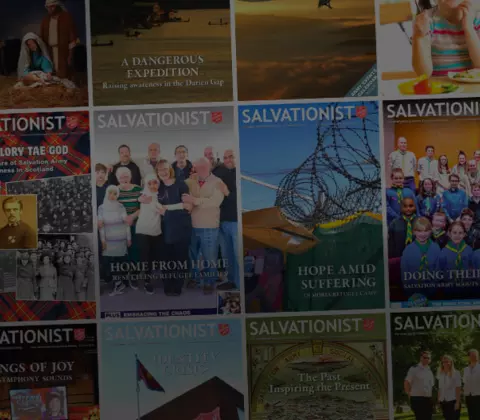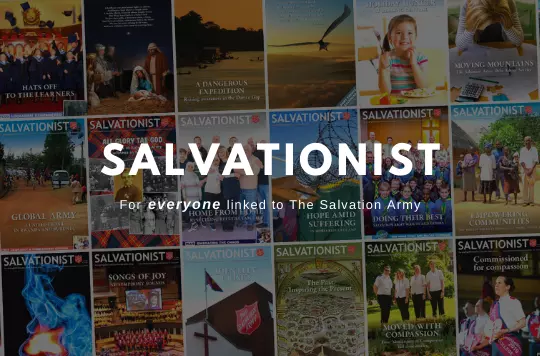
Article of the week: Mind your language
20 November 2021
Lieut-Colonel Gilbert Ellis reflects on the value of clear communication
LIKE many English people I doubt that I would have learnt a foreign language if I had never lived in another country. However, I did make the move abroad and learnt not one language but many.
Moving from England to Norway I needed to learn Norwegian and, in the process, realised that every language has distinct variations.
To be truly fluent and able to work in my appointment as a corps officer, the first I had to learn was ‘platform language’. I learnt quite a lot of useful phrases that I could use in a meeting: how to greet people, welcome them to the meeting, say ‘Let us sing song number…’ and so on. I soon discovered how to start and finish a prayer in public, or at least invite somebody else to pray.
However, when I met people during the week, I found I couldn’t use these phrases and that I had to further improve my language skills. One of the first things I learnt, in addition to ‘hello’ and ‘good morning’, was to kroner (two Norwegian crowns – the price of the Norwegian War Cry in those days). This was useful when standing on the street corner selling the paper, but not always. One day a woman came up and said how much she had appreciated the meeting the previous day. I replied in my best Norwegian: ‘Thank you. Two kroner.’ She must have been puzzled by my response!
Again, if I wanted to buy something new in a shop, I would take the old item and ask if they had something like it. That was much quicker than trying to explain, for example, what size the thread on a screw was in Norwegian. On another occasion I was out walking with my daughter when suddenly a large, fierce-looking dog came bounding towards us. It was a bit frightening,
but I managed to calm the dog down. Afterwards my daughter asked, ‘Daddy, why did you speak to the dog in English?’ My knowledge of Norwegian at that point did not cover speaking to animals!
I rapidly discovered that in different situations you needed to use different words. The way you would speak to an adult was completely different from the way you would speak to a child.
In those early days I was expected to hold a children’s meeting on a housing estate. The children were pretty wild. How was I to survive with my limited language skills? The Lord understood my predicament and I was truly inspired to bring along some crayons and a flip chart.
The moment I started drawing, the children calmed down, curious to see what I would draw. Then I turned to them and asked if they knew what it was. They did not realise it, but they were teaching me Norwegian at the same time as I was giving them an illustrated Bible talk.
The point of all this is to stress that, when talking with people who know nothing about our faith, we must initially speak in terms they will understand. It is not enough to quote the Bible; it may as well be a foreign language to them.
A woman once asked me if I would recommend a Bible reading that could be used at her mother’s funeral. One passage I mentioned was Psalm 23. A few days later she returned and said that Psalm 23 was not suitable. I was surprised and asked her why. ‘Well,’ she answered, ‘it said something about enemies, and my mother didn’t have
an enemy in the world!’
In my youth I thought it was appropriate that the verse ‘God loves a cheerful giver’ (2 Corinthians 9:7) was printed on a gift envelope – that was until one of my workmates read it and commented, ‘Well, who doesn’t?’
Jesus, on occasions, quoted Scripture, but he also took examples from nature, agriculture and building construction to illustrate his teaching. If we want to witness and communicate the gospel to someone who is a stranger to the word of God, then quoting it will not always suffice. We have to speak their language, not just ours.
LIEUT-COLONEL ELLIS LIVES IN RETIREMENT IN NORWAY

From the editor
An early look at the editor's comment

Salvationist
Salvationist is a weekly magazine for members and friends of The Salvation Army

The War Cry
The War Cry is packed with features, reviews, mouth-watering recipes, puzzles and more.